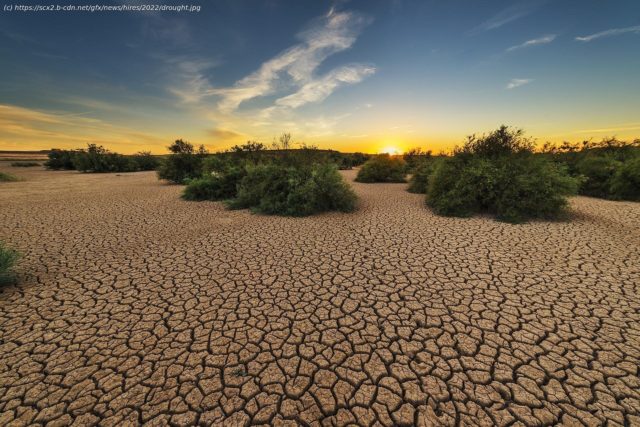Scientists looking at the meteorological impacts of climate change have typically looked at increases in severe weather and hurricanes. Now, they are studying another consequence of global warming that will have significant economic ramifications: drought.
September 14, 2022
Scientists looking at the meteorological impacts of climate change have typically looked at increases in severe weather and hurricanes. Now, they are studying another consequence of global warming that will have significant economic ramifications: drought.
Researchers at the U.S. Department of Energy’s (DOE) Argonne National Laboratory have developed a new method to assess the likelihood of extreme drought conditions in several different regions of the United States over the remainder of the century. Using this method, based on highly detailed regional climate models, they have found that droughts are likely to be exacerbated by global warming. This finding is especially likely in regions like the Midwest, Northwestern U.S. and California’s Central Valley.
«The projected worsening of droughts as a result of global warming is likely to have significant consequences in terms of crop loss, wildfires, and demand for water resources,» said Rao Kotamarthi, an Argonne environmental scientist and author of the new study.
In looking at future forecasts of droughts over the course of the remainder of the century, the researchers believe the new technique can help them to understand «flash drought» events that have a quick onset period that could be as short as few weeks.






